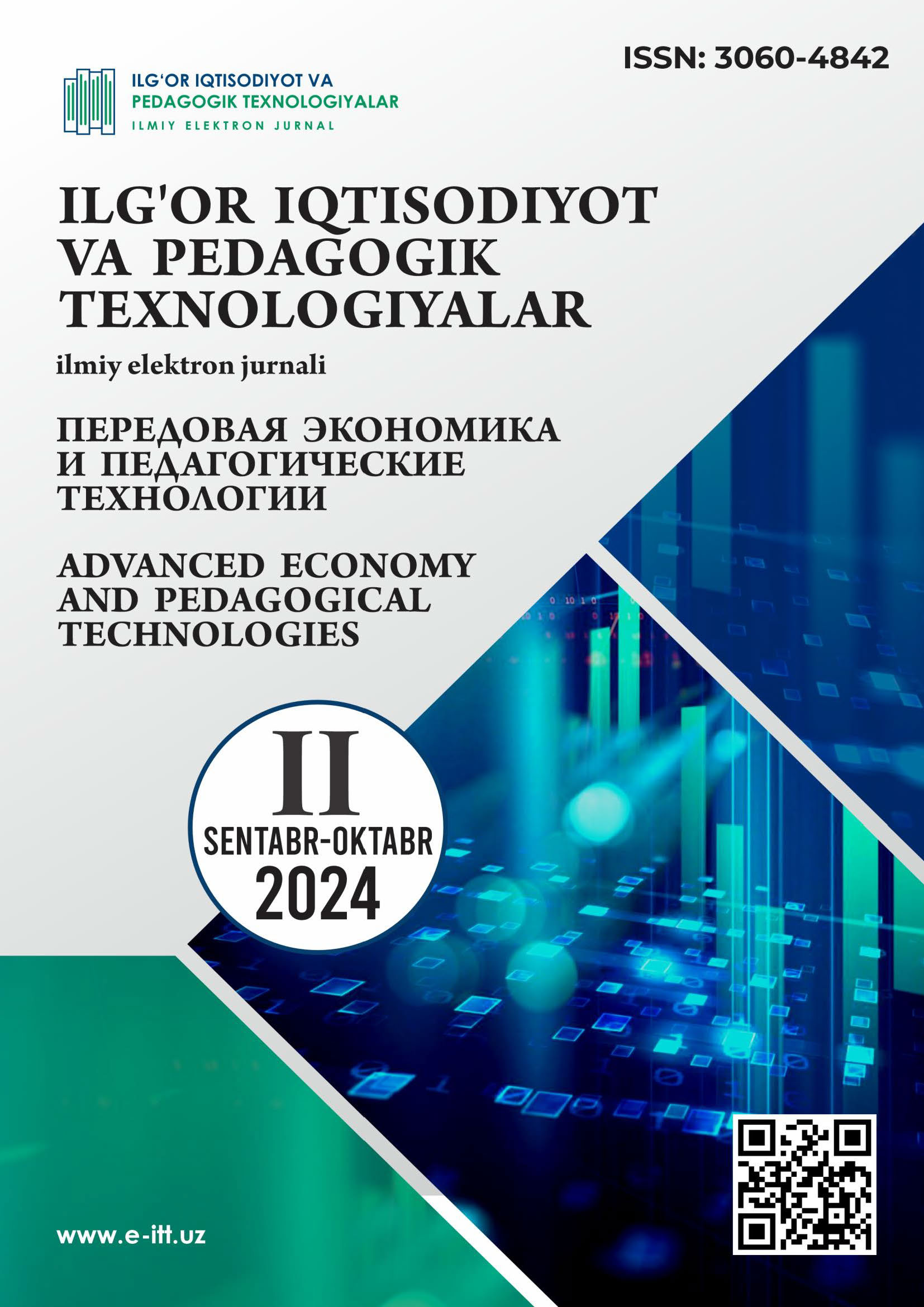DIGITALIZATION, FDI, AND SUSTAINABILITY: EXPLORING THE IMPACT OF DIGITAL FOREIGN DIRECT INVESTMENT ON ENVIRONMENTAL AND SOCIAL WELL-BEING IN UZBEKISTAN
DOI:
https://doi.org/10.60078/3060-4842-2024-vol1-iss2-pp38-48Abstract
This study investigates how Foreign Direct Investment (FDI), particularly in the digital sector, impacts environmental sustainability in Uzbekistan. FDI supports economic growth but can increase CO₂ emissions, posing environmental challenges. Through econometric analysis, the research reveals a moderate positive correlation between FDI inflows and CO₂ emissions, indicating that rising FDI may elevate emissions. This dual effect challenges Uzbekistan to balance economic development with environmental protection. Policymakers are urged to adopt robust environmental policies while encouraging sustainable FDI. The study offers insights and recommendations for aligning digital FDI with Uzbekistan's environmental and social objectives.
Keywords:
digitalization Foreign Direct Investment (FDI) Environmental Sustainability CO2 Emissions Economic Growth Resource Utilization Social Well-being Green InvestmentsReferences
Abdurashidova, M., Balbaa, M., Nematov, S., Mukhiddinov, Z. & Nasriddinov, I. (2023). The impact of innovation and digitalization on the quality of higher education: A study of selected universities in Uzbekistan. Journal of Intelligent Systems, 32(1), 20230070. https://doi.org/10.1515/jisys-2023-0070
Alvarado, R., & Toledo, E. (2017). Environmental degradation and economic growth: evidence for a developing country. Environmental Science and Pollution Research, 24(14), 13246-13258.
Astanakulov Olim Tashtemirovich, Abdurakhmanova Gulnora Kalandarovna, Muhammad Eid Balbaa, Goyipnazarov Sanjar Bakhodirovich, and Umidjon Dadabaev. 2022. ENSURING THE SMOOTH OPERATION OF PHYSICAL TECHNOLOGY COMPANIES IN DISTRIBUTED ENVIRONMENTS. In The 6th International Conference on Future Networks & Distributed Systems (ICFNDS ’22), December 15, 2022, Tashkent, TAS, Uzbekistan. ACM, New York, NY, USA, 8 pages. https://doi.org/10.1145/3584202.3584213
Astanakulov Olim Tashtemirovich, Muhammad Eid Balbaa, Foziljonov Ibrohimjon, Nilufar Batirova. (2024). Investigating the Impact of Artificial Intelligence on Digital Marketing Tactics Strategies Using Neutrosophic Set. International Journal of Neutrosophic Science, 23 ( 3 ), 175-183.
Balbaa, M. E. (2024). Socio-Economic Indicators and their Impact on Sustainable Economic Development: An In-depth Analysis of Egypt. International Journal of Economics and Financial Issues, 14(2), 136–145. https://doi.org/10.32479/ijefi.16016
Grossman, G. M., & Krueger, A. B. (1995). Economic growth and the environment. The Quarterly Journal of Economics, 110(2), 353-377.
Jalil, A., & Mahmud, S. F. (2009). Environment Kuznets curve for CO2 emissions: A cointegration analysis for China. Energy Policy, 37(12), 5167-5172.
Kivyiro, P., & Arminen, H. (2014). Carbon dioxide emissions, energy consumption, economic growth, and foreign direct investment: Causality analysis for Sub-Saharan Africa. Energy, 74, 595-606.
Muhammad Eid Balbaa, Astanakulov O. Tashtemirovich. (2023). Fusion-Based Econometric Analysis: Assessing Investment Project Efficacy and Business Decision Making. Fusion: Practice and Applications, 13 ( 2 ), 145-155. https://doi.org/10.54216/FPA.130213
Omri, A., & Kahouli, B. (2014). The nexus among foreign investment, domestic capital, and economic growth: Empirical evidence from the MENA region. Research in Economics, 68(3), 257-263.
Sadorsky, P. (2010). The impact of financial development on energy consumption in emerging economies. Energy Policy, 38(5), 2528-2535.
Shahbaz, M., Lean, H. H., & Shabbir, M. S. (2012). Environmental Kuznets curve hypothesis in Pakistan: Cointegration and Granger causality. Renewable and Sustainable Energy Reviews, 16(5), 2947-2953.
Stern, D. I. (2004). The rise and fall of the Environmental Kuznets Curve. World Development, 32(8), 1419-1439.
Tang, C. F., & Tan, B. W. (2015). The impact of energy consumption, income, trade openness, and foreign direct investment on carbon dioxide emissions in Malaysia. Energy, 90, 1497-1507. Zhang, X.-P., & Cheng, X.-M. (2009). Energy consumption, carbon emissions, and economic growth in China. Ecological Economics, 68(10), 2706-2712.







